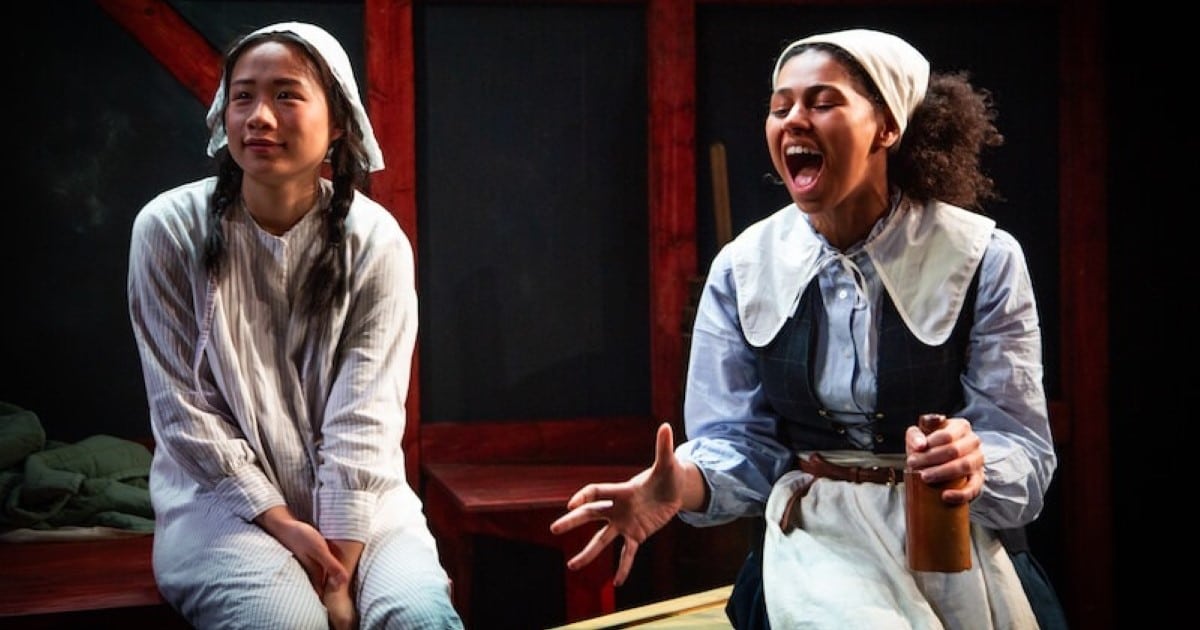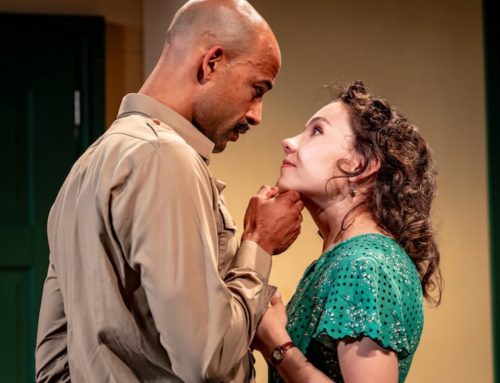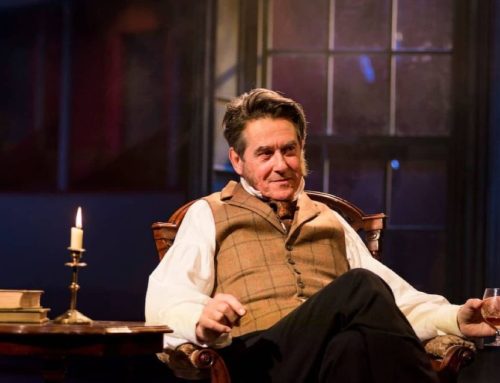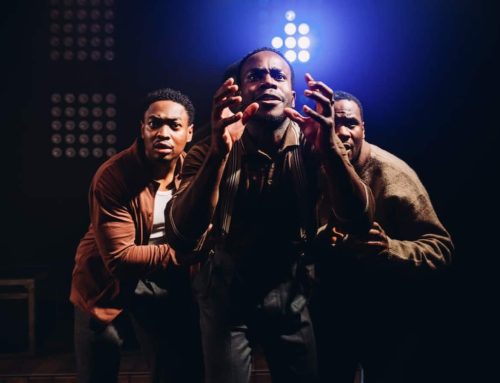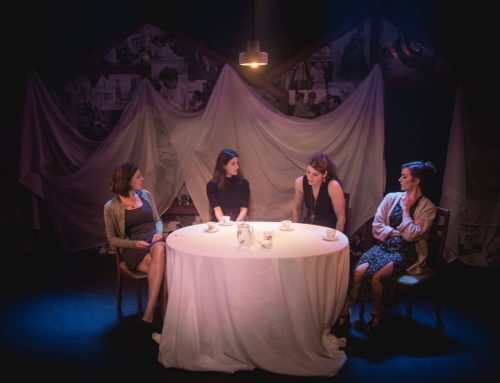Towards the end of The Crucible, Arthur Miller’s master work about the 1690s Salam Witch trials, his protagonist asks rhetorically of himself, “God in heaven, what is John Proctor?” Miller’s view is that Proctor is a flawed but decent man whose determination to protect his reputation by refusing to falsely admit communion with the devil costs him his life. In The Good John Proctor, part prequel and part feminist response to The Crucible and the trials themselves, writer Talene Monahon asks the same question. The answer she offers is very different. Far from good, John Proctor is a predatory paedophile empowered by a puritan patriarchy in which the role of women is to suffer in mind and body.
Set in the year leading up to the events dramatised in The Crucible, the play focuses on the coming of age of four real-life girls whose later denunciations led directly to the execution of 19 innocent people for witchcraft. In Miller’s Salam the devilry is imaginary, the town gripped by irrational hysteria conjured up by the fantasies of deceitful adolescents. In Monahon’s Salam the evil is real and visceral, and most of it is perpetrated by men against women.
Ten year old Betty Parris (Sabrina Wu) plays with poppets, jokes about spirit farts, and dreams of dancing devils. She imagines a magic kingdom on the other side of the spooky woods (a metaphor here for world of men that is forbidden to women) surrounding her home. “I want to marry butter so hard,” she says in a sign of the innocence she is soon to lose.
Betty’s cousin and bed-mate Abigail Williams (Anna Fordham) is a lively, curious child three weeks shy of her twelfth birthday. There is a hint of queerness in her affection for “boy’s work”, labour she gets to do when sent to work as a skivvy at the farm of the neighbouring Proctor family. John Proctor’s interest in her is anything but neighbourly. “You always want to be King but you’re not even a man”, Betty complains of Abigail’s approach to game-playing. Offstage and on, the women in this piece are almost entirely devoid of agency.
Mercy Lewis (a sparky and engaging Amber Sylvia Edwards) is a cocky, loudmouthed, fourteen year old with a fondness for cider and a conviction that “there’s evil everywhere”. She has secrets of her own and an attitude way too cynical for her tender years.
Add into the mix the newly arrived eighteen year old idiot savant Mary Warren (Lydia Larson channelling Phoebe from the sitcom Friends) whose epileptic fits make her feel like her head is “full of lightening”. Mercy describes the ethereally strange knife-wielding Mary as having a “weirdish vibe”, which is something of an understatement. A fantasy sequence late on in The Good John Proctor sees Mary shift through time to inhabit the bodies of the multitude of actors who have played the character onstage in The Crucible. It is unclear why.
Monahon’s dialogue is a mixture of modern American teen slang and 17th century Milleresque vernacular. One supposes the aim is to give the characters a recognisable female voice that somehow encompasses both present and past. Fair enough, but the combination of butter churning, puritan period dress and “Hello Bitches!” style High School slang sometimes feels incongruous. “What the fuck!” says Mercy periodically and you may well feel the same. Think Mean Girls mashed up with TV’s Stranger Things and regurgitated into an episode of Margaret Attwood’s The Handmaid’s Tale. The tone veers from comedy at the outset to something more serious in the (less unsatisfactory) second half.
No plot spoilers here, but anyone who has seen The Crucible will know whether the girls enter the woods. Those who have not seen Miller’s opus magnum are advised to brush up on the play or at least google the witch trials, otherwise much of what transpires here will make little sense. The historical record suggests the real life John Proctor may never even have met Abigail Williams prior to the court case; Monahon plays fast and lose with the veracity every bit as much as Miller does.
The Good John Proctor is best in its depiction of the domestic lives of girls growing up under the yoke of puritan theocracy. There is pathos and pain in the girls’ subjugation and ignorance – most effectively rendered in a scene in which Abigail experiences her first period. “Satan has hit you up if the blood stops” Mercy warns her ominously. One cannot help thinking a feminist reimagining of the Salam witch trials ought to view the fourteen innocent women who were hanged as something more than collateral damage in a teenage battle against the patriarchy.
Writer: Talene Monahon
Director: Anna Ryder
More Recent Reviews
The King of Hollywood. White Bear Theatre.
Douglas Fairbanks was a groundbreaking figure in early American cinema. Celebrated for his larger-than-life screen presence and athletic prowess, [...]
Gay Pride and No Prejudice. Union Theatre
Queer-inspired reimaginations of Jane Austen’s Pride and Prejudice are a more common species than one might initially imagine. Hollywood [...]
Knife on the Table. Cockpit Theatre.
Knife on the Table, Jonathan Brown’s sober ensemble piece about power struggles, knife violence, and relationships in and around [...]


